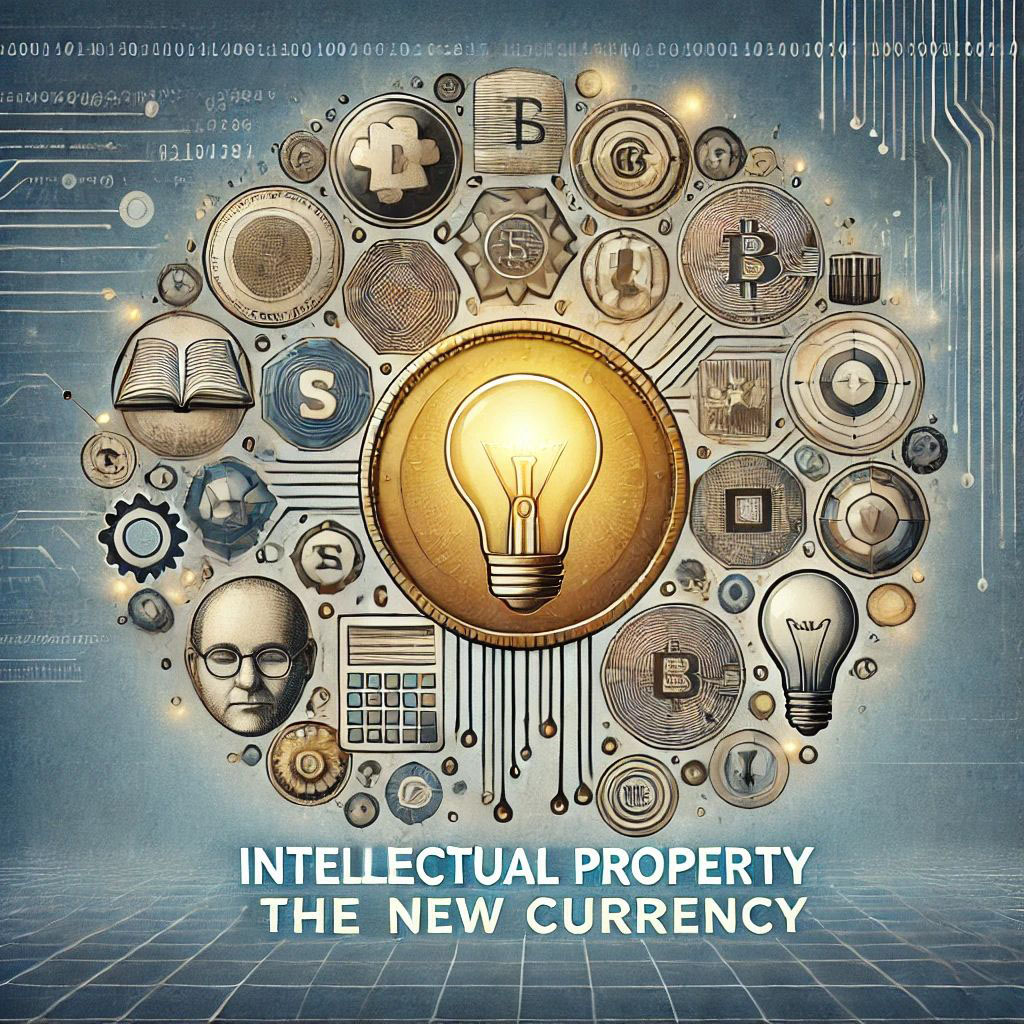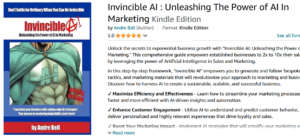In the last century, the way we define wealth has evolved. What once relied heavily on physical assets, land, and factories has shifted to something far less tangible but arguably more powerful: Intellectual Property. Today, the economy is increasingly built on the value of ideas, innovation, and creative ownership, making Intellectual Property the new currency of our time.
Yet, despite this shift, many people are hesitant to embrace it. Personally, I’ve encountered more than a few voices urging me to leave content creation behind—to walk away from building intellectual assets in favor of a “guaranteed” part-time labor job. But that suggestion, in my view, is like trying to hold onto a relic from a bygone era. Labor jobs, while still valuable in certain industries, are fading. We’re no longer in the age of the Industrial Revolution, where vast numbers of people are needed to work in factories. Instead, we’re living in a world where innovation, creativity, and intellectual property drive progress.
Here’s why Intellectual Property is the new currency—and why we need to stop clinging to the past and start investing talents towards the future.
The Shift from Labor to the Knowledge Economy
The Industrial Revolution was built on physical labor. In the 19th and early 20th centuries, companies depended on human bodies to operate machines, build infrastructure, and manufacture goods. Those were the days when laborers made the economy turn, and society placed tremendous value on those jobs. But over time, technology changed everything. Machines and assembly lines increased efficiency, allowing fewer people to do more work in less time.
Fast forward to today, and we’re seeing an even more drastic shift. Many labor-intensive jobs are either automated, outsourced, or eliminated. Jobs that once required thousands of workers can now be done by a single machine or an automated process. And while some industries still need human labor, most traditional labor roles are gradually becoming obsolete.
In their place, the knowledge economy has taken center stage. Today, the real currency isn’t physical labor—it’s intellectual value. Knowledge workers, content creators, and innovators are the new economic drivers. From software developers to educators, from writers to consultants, from patent holders to copyrights owners, the economy now runs on ideas, insights, and intellectual assets. In this age, creators of Intellectual Property are building the new world.
Why Intellectual Property is the New Currency
1. Economic Impact of Intellectual Property
The economic value of IP is staggering. Intellectual Property-driven industries, like technology, entertainment, and education, make up a significant portion of GDP in countries worldwide. When you look at the valuations of major companies—think of Apple, Google, Microsoft—it’s not just their physical assets that give them worth; it’s their IP. Their patents, software, branding, and even proprietary algorithms are worth billions. These intangible assets are where the true value lies, showing that the modern economy thrives on IP.
2. The High Demand for Content Creation and Innovation
There’s an insatiable demand for fresh content, new technology, and unique ideas. Companies need innovative software, engaging marketing content, and creative storytelling to stand out. Content creators and innovators aren’t just “nice to have” anymore; they’re essential. They’re the ones creating value by supplying the world with fresh, engaging, and functional IP.
3. The Scarcity and Value of Unique Knowledge
Just like currency, Intellectual Property gains value from its scarcity. A unique invention, a compelling story, or a powerful new approach is something that can’t be easily replicated. Labor, on the other hand, can be outsourced or replaced. By creating IP, you’re producing something rare and valuable—something that, unlike physical labor, can generate income over and over again. Intellectual assets like software, courses, books, and patents have the potential to bring in revenue long after they’re created, making them a sustainable path for anyone serious about building wealth and career stability.
Why Labor-Only Jobs Are Becoming Obsolete
1. Automation and Outsourcing
Automation and outsourcing have transformed the job landscape. Where people once ran machines, now machines run themselves. AI, robotics, and machine learning allow companies to perform complex tasks without needing an extensive human workforce. Many labor-only jobs are simply no longer in demand because they’re being done more efficiently by technology.
2. The Dead Focus of Pursuing Only Labor Jobs in a New Era
Focusing solely on traditional labor jobs is like trying to hold onto coal power in the age of renewable energy. Labor-intensive jobs were the lifeblood of the economy during the Industrial Revolution, but that era has long passed. Those who refuse to recognize this shift risk becoming as obsolete as manual switchboard operators or telegraph workers.
The Importance of Valuing Intellectual Property
1. Creativity as a Career
Some people still question whether creating Intellectual Property can be a “real” career, as if jobs like writing, software development, or consulting are somehow secondary to traditional labor jobs. But creating IP is more than a career—it’s a contribution. When you create something new, you add value to society and the economy. And because it’s intellectual, it doesn’t just serve its purpose once; it has the potential to keep giving.
2. Self-Worth and Empowerment as a Creator
Earning a living from Intellectual Property is incredibly empowering. It’s a chance to work independently, to build something that belongs to you, and to generate value that no one can take away. The ideas you create, the content you publish, and the knowledge you share are assets that have a lasting impact. Personally, I find that creating IP adds purpose to my work—it gives me the chance to build something that lasts, something that matters, and something that’s mine.
Why We Need Creators More Than Ever
1. Bridging Knowledge Gaps
With technology advancing at breakneck speed –faster than any of us can keep up with– there’s a growing need for creators who can bridge the gaps. IP creators are essential in translating complex ideas, developing new tools, and making knowledge accessible. Without them, society would lack the resources to understand and adapt to the new technologies shaping our world.
2. Fostering Innovation
Innovation thrives where there are new ideas and fresh perspectives. Intellectual Property creators are the ones pushing boundaries, advancing industries, and bringing new solutions to age-old problems. From writers and educators to software engineers and artists, these creators are the architects of tomorrow.
3. Sustainable Careers in a Digital Economy
One of the great advantages of creating IP is that it allows for multiple revenue streams. Books, courses, software, and patents can generate income long after the initial work is done. Unlike a labor job that offers a fixed paycheck, IP offers the potential for ongoing earnings, making it a sustainable way to earn a living in today’s digital economy.
The modern economy doesn’t just need laborers; it needs creators. Intellectual Property is the new currency, and those who embrace it are poised to thrive. As a creator, you’re not simply earning a living—you’re building something lasting, valuable, and uniquely yours. The future belongs to those who innovate, educate, and create.
So, to anyone who has been told to “get a real job” or abandon their creative pursuits for a guaranteed paycheck, I say this: the real job, the real future of this economy, lies in Intellectual Property. Don’t let anyone make you feel otherwise. If we don’t adapt to the new economy, we risk becoming as obsolete as factory jobs in the age of automation. Create something that matters, and let the world see the value in it.
Intellectual property is the new currency. Those who harness the power of innovation and ideas will lead the future. If you’re an established business owner or founder ready to leverage your unique strengths to drive revenue growth to the next level in this age of IP, let’s connect. My coaching and consulting services are designed to help founders like you turn your unique assets into tangible results.



